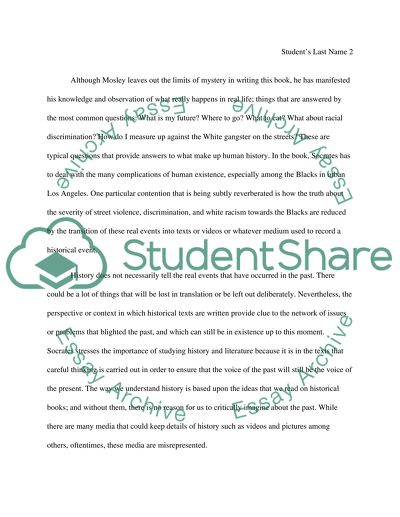Cite this document
(“Socrates Fortlow, History, and Anna Deavere Smith Essay”, n.d.)
Socrates Fortlow, History, and Anna Deavere Smith Essay. Retrieved from https://studentshare.org/visual-arts-film-studies/1496489-socrates-fortlow-history-and-anna-deavere-smith
Socrates Fortlow, History, and Anna Deavere Smith Essay. Retrieved from https://studentshare.org/visual-arts-film-studies/1496489-socrates-fortlow-history-and-anna-deavere-smith
(Socrates Fortlow, History, and Anna Deavere Smith Essay)
Socrates Fortlow, History, and Anna Deavere Smith Essay. https://studentshare.org/visual-arts-film-studies/1496489-socrates-fortlow-history-and-anna-deavere-smith.
Socrates Fortlow, History, and Anna Deavere Smith Essay. https://studentshare.org/visual-arts-film-studies/1496489-socrates-fortlow-history-and-anna-deavere-smith.
“Socrates Fortlow, History, and Anna Deavere Smith Essay”, n.d. https://studentshare.org/visual-arts-film-studies/1496489-socrates-fortlow-history-and-anna-deavere-smith.


